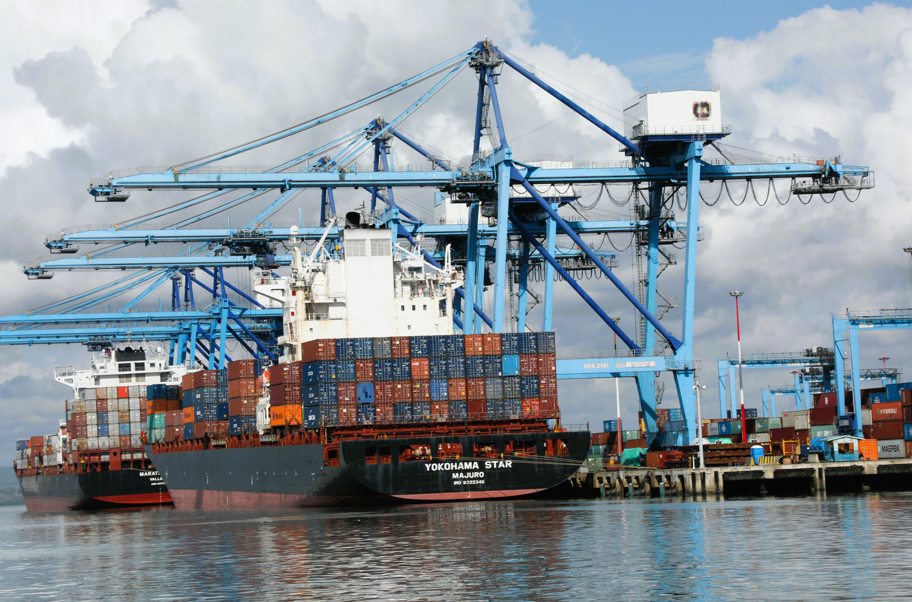
 Operations at the Port of Mombasa/ FILE
Operations at the Port of Mombasa/ FILEThe multiplicity of government agencies in cargo clearance and additional levies is threatening trade in Kenya and the region, shippers now say.
This, coupled with system downtimes for permits and cargo clearance in addition to the rise in the number of permits required for imports and exports, is adding to the pain being felt by traders already saddled by the cost of doing business, including storage and demurrage charges.
According to the Shippers Council of Eastern Africa (SCEA), the cost of logistics remains “alarmingly high”, estimated between 35 per cent to 42 per cent of total landed costs. This is compared to eight to 10 per cent in Europe.
“Domestically, our members continue to grapple with persistent delays leading to high storage and demurrage charges, and an increasingly complex regulatory environment,” SCEA chairman John Msafari said at a stakeholders’ forum in Nairobi on Wednesday.
While the government
in 2020 issued a memo sending over 20 state agencies out of the Port of
Mombasa, leaving a select few like
immigration, Port Health, KRA and Kebs in a move to improve port efficiency and
cut bureaucracy, the number is said to have gone back to 38.
There is also the introduction of new and increase of charges by government agencies among them Kenya Plant Health Inspectorate Service (KEPHIS), Agriculture and Food Authority (AFA), National Biosafety Authority (NBA) and Kenya Trade Network Agency (KenTrade), all which are seeking more revenue through increased charges on permits, inspection and cargo clearing.
KEPHIS has been pushing to have shipping lines pay an inspection fee of Sh2,000 for those exceeding 10,000 tonnes and Sh1,000 inspection fee for smaller vessels and Sh375 per container, in addition to other charges.
KPA also wants to increase tariffs on at least 25 services offered at the Port of Mombasa, Lamu, and Inland Container Depots, among other facilities, which will push up some charges fivefold.
This is on the advice of consultancy firm–Maritime Business and Economic Consultants, owned by former KPA top managers that bagged a Sh14.8 million contract to guide the review of service charges by the state corporation.
The tariffs include pilotage fees, tug services, mooring services, light dues, port and harbour dues, dockage, buoyage and anchorage, supply of fresh water, salvage and towing operations, stevedoring, container handling charges, storage charges and penalties.
NEMA has also been keen to charge an Extended Producer Responsibility (EPR) fee, among them $1 (Sh129) per item imported into the country, payable to NEMA for end-of-life management, including research, recycling and disposal.
Other challenges faced by traders include frequent downtimes in KPA, KRA and KEBS systems, delays in railage of cargo from Mombasa to Nairobi, lack of Pre-Export Verification of Conformity service providers in some regions, particularly in the UK and other regions like Egypt.
There are also concerns over lack of mutual recognition of standards across EAC and shipping line surcharges.
These challenges also amount to delays which continue to expose trader to high storage and demurrage costs where last year, shippers paid Sh6 billion in storage to KPA while demurrage cost at the Nairobi Inland Container Deport accounts for approximately Sh25 million per week.
SCEA chief executive Agayo Ogambi said: “We need to make our ports efficient and competitive. Let us get a good balance between revenue generation and trade facilitation,” Ogambi said.
He said traders must also “plane well” including securing required permits and getting their cargoes into the market on time.
Kentrade CEO David Ngarama noted that upto 38 state agencies are now operating under the Single Window System which facilitates digital permit processing and cargo clearance, with 4,000 to 5,000 permits processed per day.
“You will give us a bit of time as we continue upgrading our systems....Kentrade system challenge has been mapping but we assure you that will continue working on this, we also have a challenge with funding but we will continue upgrading,” he said during the SCEA stakeholder’s forum that also included KPA, KRA, KEPHIS, Agriculture and Food Authority, insurance firms, banks, shipping lines and other players in the maritime and logistics sector.












